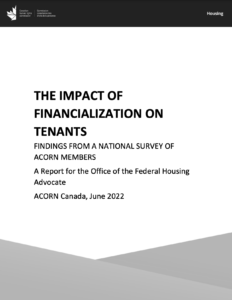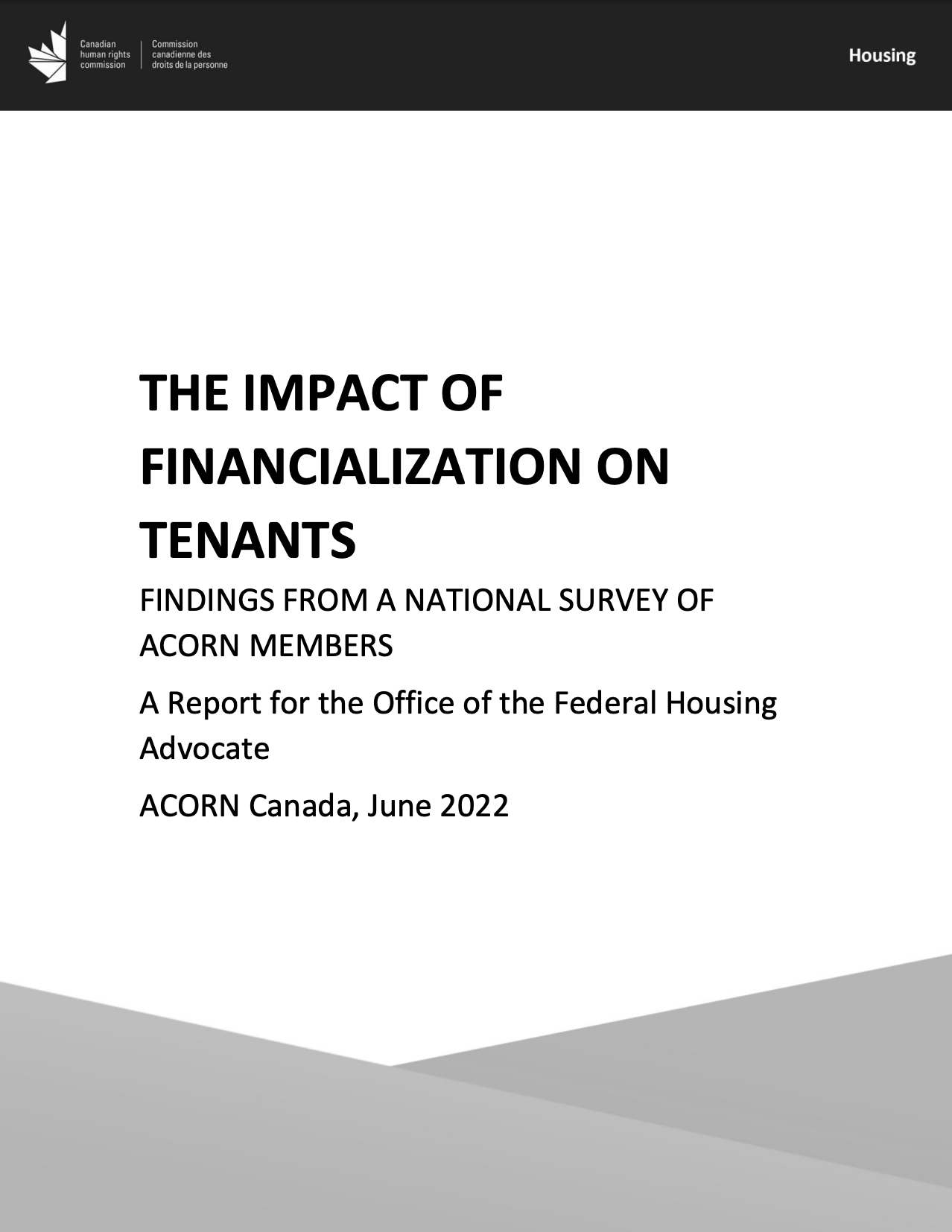The Impact of Financialization on Tenants: Findings from a National Survey of ACORN Members
Posted September 9, 2022

On Sept. 8th 2022, the Office of the Federal Housing Advocate released a series of research reports that explore the growing trend of financial firms using housing as a commodity to grow wealth for their investors.
As part of this research, ACORN Canada conducted a survey to examine the impact of financialization of housing on low- and moderate-income tenants. To read the report, click here
To read all the other reports, click here.
Join ACORN’s online action to stop the financialization of housing
Private equity firms, pension funds, and real estate investment trusts (REITs) are increasingly acquiring, operating, and developing housing as an investment strategy, with the aim of maximizing returns for shareholders.
This phenomenon, known as the financialization of housing, is not only driving house prices out of reach for middle-class families – it is also denying members of disadvantaged groups their fundamental human rights.
The reports confirm this trend is having the greatest impact on disadvantaged groups, such as vulnerable seniors, low-income tenants, people with disabilities, members of Black communities, recent immigrants and refugees, and lone-parent families.
Financialization is contributing to unaffordable rent increases, worsening conditions, and a rise in evictions – often due to renovations or rebuilding with the goal of charging higher rents. There is also a well-documented connection between financialization and increased morbidity and mortality in long-term care facilities.
You can make a submission about your experience with your corporate landlord.

